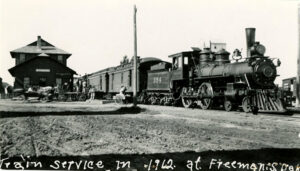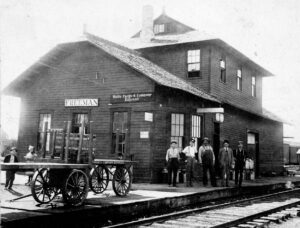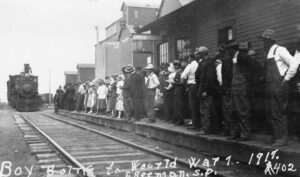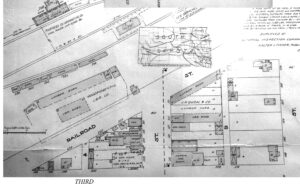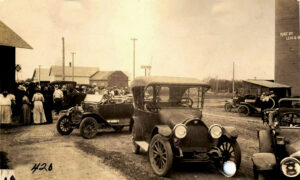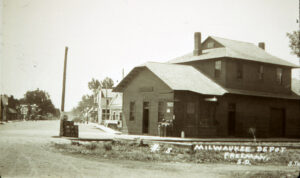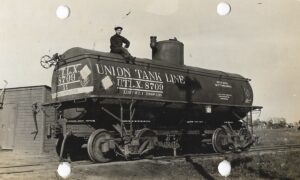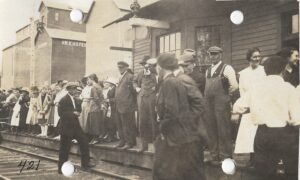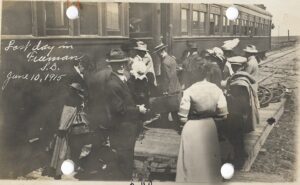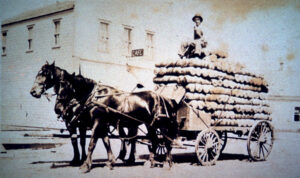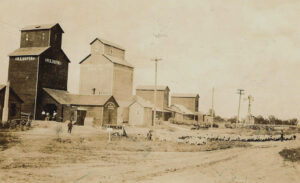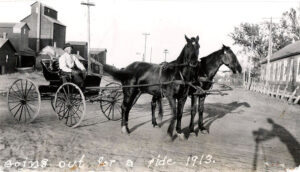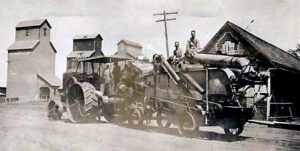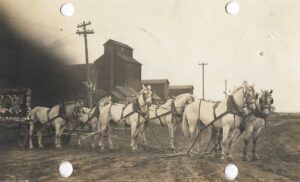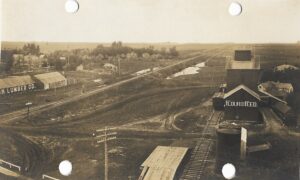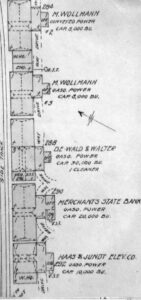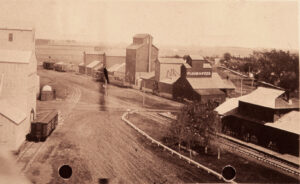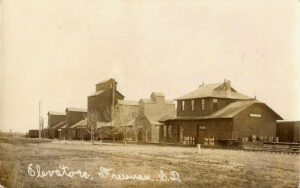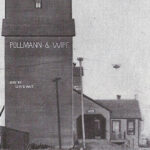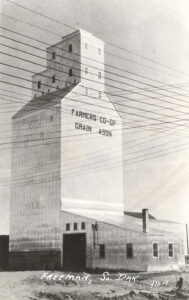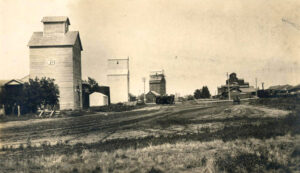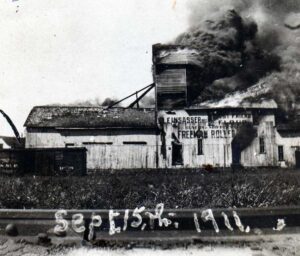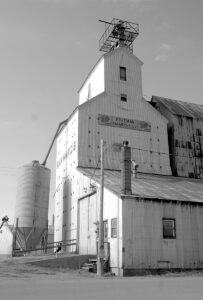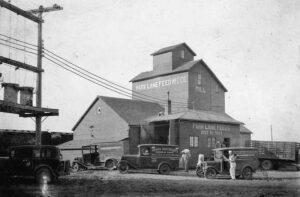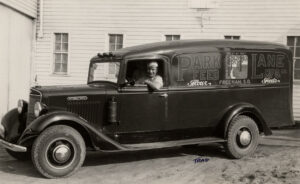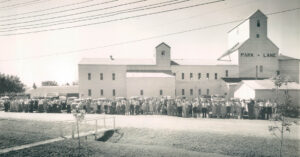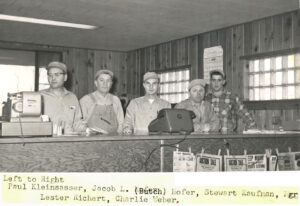Freeman Depot
In 1878 the Chicago, Milwaukee, and St. Paul Railway Company extended their line from Hull, IA to Dakota Territory and decided on a station in Freeman. Around 1879 the first train went though town, but the land was not purchased until 1881.
On June 23, 1881 Friedrich Waldner bought 160 acres (NW section 35 of Grandview Township) from the United States. Fred kept sold 150 acres of land to John Lawler who platted the original town site and sold the land to the railroad company.
When the railroad came to Freeman, Christian Buechler dismantled his store in Yankton, hauled the sections to Freeman on a hayrack, and reconstructed it on the corner of Third and Main Street. By 1881 the railroad was completed through Freeman, Dakota Territory. The railroad soon brought immigrants and supplies for houses and stores.
In 1888 the Freeman Depot was built (just south of the Shanard Elevator). F.B. Wood was the depot agent. The tracks ran from southwest to northeast following Railway Street. The depot operated until the 1970’s and the building was torn down in 1974. The final train rolled through town on July 12, 1978.
Elevators
Several elevators were built on the railroad grounds east of the depot. The first elevator in Freeman was built in the late 1880’s. In 1911 there were five elevators along the tracks. By 1916 there were seven which included: Farmers, WH Bormann, Hofer & Gross, Pollman & Wipf, Shanard, and M Wollman. In the 1950’s there were only three remaining: Farmers Coop, Park Lane, and Shanard.
T.R. Putnam built the first Flat Warehouse along the railroad tracks (east of the depot). It was sold to John Schamber, who later sold it to the Farmers Co-op. The first board of directors consisted of: Christ P. Dickmann, John J. Gross, G.T. Hanson, Sam Christensen, Fred H. Huber, Wm Pfeiffer, and Jacob A. Wollman. Christian Buechler was the first president of the Co-op.
Freeman Farmers Elevator started in 1921 as The Farmer’s Grain and Stock Company. All grain was shipped out by rail until the 1940’s. In 1942 the cooperation became Freeman Farmers Co-op Elevator and in 1956 a cleaner was installed. In 1974 stockholders built a 45,000 bushel elevator and in 1976 added a silo on the west side of the elevator. In 1977 a stationary mill was installed. Since all grain is now shipped by trucks, a 60 ton (10 by 70 foot) scale was built.
In the 1880’s William Dewald and Sam Walter started Dewald & Walter grain elevator (east of the depot). They bought grain and livestock near the railroad yards (between Cherry and Dewald Street). This later became Dewald Stock Yards. In the early years, Freeman held the record for the largest livestock shipping center in the state.
Freeman Farmers Flour Mill was established in 1896 by John Williams (corner of Plum and Juniper Street). It was sold to Christian Buechler in 1898, which he ran until 1904. Christian sold the business to Isaac Kleinsasser. In 1906 Isaac traded the roller mill for land in North Dakota. In September 1911 the “Kleinsasser” building, Freeman Flour Mill burned down. It was rebuilt shortly after.
Around 1925 Albert T. Kaufman, (specialized in raising pure bred Poland China Hogs) started experimenting with feed mixtures. He stared a feed business with a hoe and cement box. In 1927 Albert moved his business to Juniper Street and stared Park Lane Mineral Company. In 1929 he went into commercial feed grain manufacturing full time. Park Lane soon became a statewide commercial feed manufacturer.
In 1930 a new Park Lane Feeds building was constructed on Juniper Street just west of Shanard’s Elevator. In 1935 Park Lane acquired a new elevator and Albert operated the business until 1947. Jacob “Butch” L. Hofer managed the business until 1955, and a fire that destroyed the building. Park Lanes was rebuilt in 1956 and Stewart Kaufman took over. In 1965 a pellet machine was installed and in 1971 a new grain dryer was installed. Park Lane Feeds closed in 1994.

